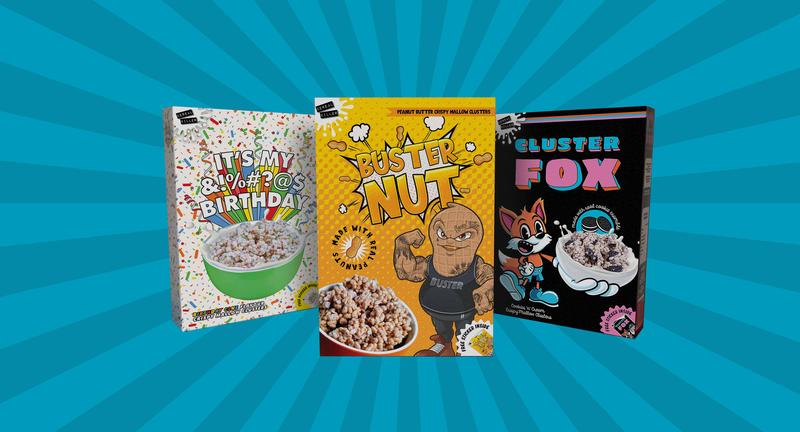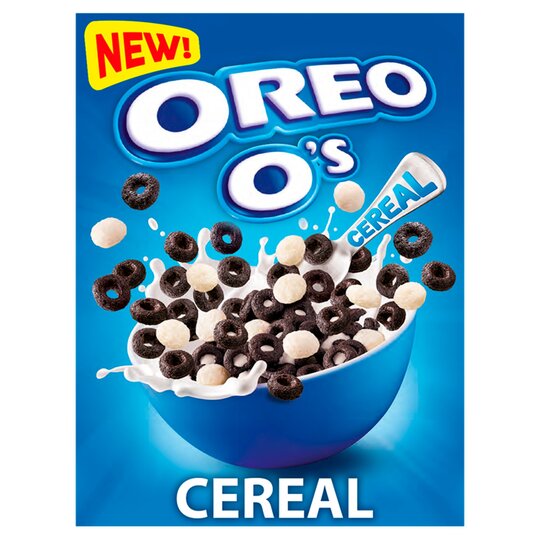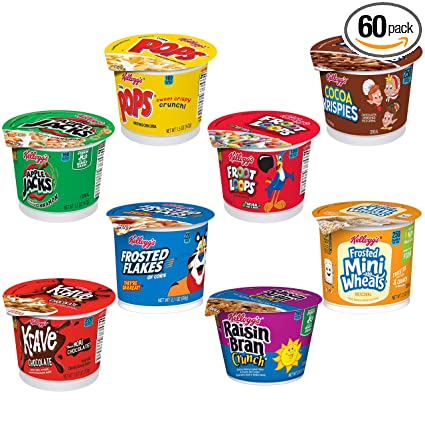Cereal in a warm or cold bowl of milk could be one of your favorite breakfast choices. This is a healthy breakfast, as the goodness of the whole grains give you the much-needed nutrients of proteins, vitamins, minerals and fiber, to keep you fit throughout the day. You may love to enjoy different types of cereals on different days. Kids love the chocolate-based ones, while adults love the nut-based ones.
When your cat is sitting next to you, watching you lap up your bowl of cereal, it puts its tongue out, asking you to share your breakfast with it. What do you do? Of course, you are tempted to share the last tit-bits of cereal remaining in your bowl with your feline friend. You love it when your cat slurps and licks away the contents of the bowl with a lot of happiness.
Do you plan to give cereals to your cats regularly? This article will tell you why it wouldn’t be a great idea, after all. If you have been wondering if your cats can eat cereal, the answer is no. Why is it not recommended to give cereals to cats? Keep reading to find out more on this topic.
Are cereals beneficial?
Yes, they are, but only for humans. Cereals contain whole grains and oats that are rich sources of proteins, vitamins & minerals and fiber. Proteins help in building your body and repairing worn-out muscles. Vitamins & minerals help to improve your immunity, so that you can protect yourself against common ailments like cold and flu. Fiber is important for your gut health. When you consume a lot of fiber-rich foods regularly, you can be free of issues like constipation, irritable bowel syndrome, bloating and other abdomen-related issues.
Even with all their goodness, cereals are not recommended for cats. Every species has its natural characteristics to go by. Cats, by nature, are obligate carnivores. Therefore, their diet is purely meat-based. Sometimes, even their treats contain meats and meat-based products. Since they are lightweight, they have a delicate and sensitive digestive system. This digestive system can handle only meat and meat-related products properly. They cannot handle other foods only. Grain-based cereals are one such example.
Are cereals toxic for cats?

No, cereals are not toxic for cats. They don’t even cause any serious health hazards in felines. Sometimes, when felines ingest too many cereals over a prolonged period of time, they may show symptoms like vomiting, diarrhea and abdominal discomfort.
Cereals aren’t fatal for cats. So are you wondering why it is not recommended for felines, then? It is because cereals don’t have many nutrients that are very important for cats. Yes, cereals may contain proteins and fiber, but cats already get their daily recommended dosage of proteins and fiber from the meat they eat. They don’t need the protein or fiber content from cereals.
Can I give cereals in very small quantities to cats occasionally?
Though cats may not face serious health risks with cereals, it is not recommended to give them this snack occasionally. Sometimes, when you have your breakfast, your cat may slightly lick some cereal or milk that has fallen. This shouldn’t be a problem at all.
If your cat likes eating cereals, you may give it a small piece, only occasionally. Before deciding to give cereals to cats, please check with the vet if your cat is intolerant to gluten, grains and sugars. If their digestive system cannot handle gluten or grains, then cats will show immediate discomfort after ingesting cereals. Vomiting, lethargy and diarrhea are some of the common symptoms that grain-intolerant cats will exhibit, when they are fed cereals.
The good thing about cereals is that your cat will not be too attracted to them. Plain cereals come with a slightly sweet taste. Cats don’t have sweet receptors in their tongue. So, they don’t find the taste of the cereal appealing enough to come for a second helping. If, on rare occasions, they do come back to you for a second round, you should ensure that you don’t feed too many cereals for your cat to feel full. Meat should continue to be the main food for the cats, and cereals should never substitute them.
Not-so-healthy ingredients used in cereals

Cereals are made from two main ingredients – grains and sugar. Let us see about each of these ingredients and their impact on cats in the following sections:
Grains
Unless they are grain-intolerant, cats do not experience any serious health risks when they ingest the grains in the cereals. Though they come with a lot of health benefits for humans, the same cannot be said about cats. Grains don’t have any nutritional content for cats. Cats have completely different digestive systems from humans, and their daily nutrient requirement levels are also different from humans. The regular foods of cats (meat and seafood) contain all the nutrients they need; therefore, they don’t need to depend on any other food source for their health.
Sugar
Most of the cereals contain small amounts of sugar. Since cats cannot understand the concept of sweetness, they cannot digest sugar well. When they consume too many cereals, the cats may experience disturbances in their digestive system, and show symptoms like pain or discomfort in the abdomen, diarrhea, vomiting and more. In severe cases, too much sugar consumption can also lead to diabetes and obesity.
Is it alright to give cereal and milk to cats?
No, you should never give cereal with milk to cats. Most of the cats that are aged above 2 months are lactose intolerant. Though they may love the taste of milk, cats cannot digest the lactose compound present in milk and milk products. Hence, it causes unnecessary pressure on their digestive system when you give cereal and milk to cats.
Final Word
Cereals, considered to be healthy breakfast options for humans, are not recommended for cats. This is because cereals don’t bring any nutritional value for the felines. Additionally, cereals also contain grains and sugar, which can cause disruptions in the cats’ digestive system, causing gastrointestinal issues. Instead, it would help if you opted for a meat-based diet and healthy treats for cats, to help them stay healthy always.
